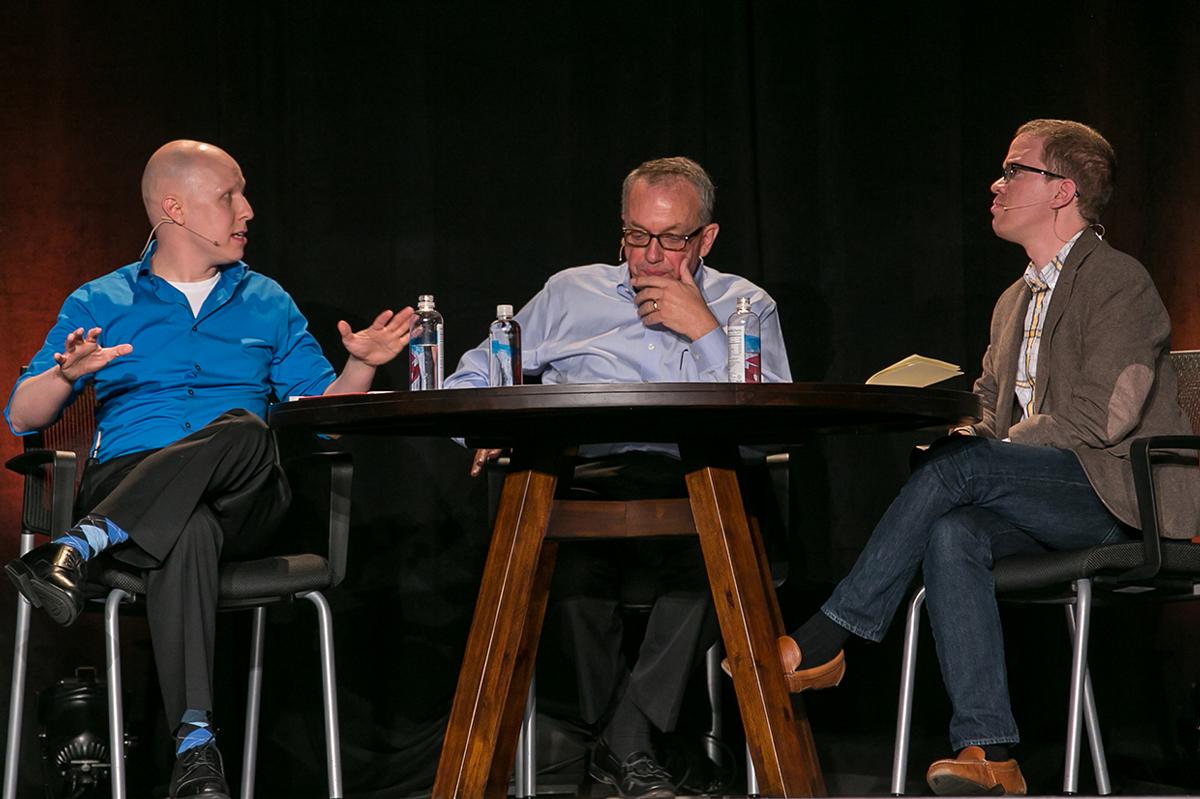
With multiple events, an article from President Barry Corey and a revised position paper on Biola’s stance on homosexuality, this conversation has begun to show its complexity. With all this attention, we find ourselves needing a reminder. Why has Biola started talking about sexuality at all?
Well, approximately 10% of men ages 18-44 and 10% of women ages 18-44 identify as something other than heterosexual, according to the website for the Sexuality Information and Education Council of the United States. Even if we assume these numbers may not be entirely representative of Biola’s population, they represent the larger population of the United States. This means in part that we, as citizens of a wider culture, need to have some foundational understanding of sexualtity.
We find ourselves undecided. We do not know how to properly apply what the Bible seems to say about sexuality and same-sex behavior to the way we interact with people on a daily basis. As far as we can tell, heterosexual marriage seems to be advocated and same-sex relationships discouraged.
But does this mean homosexuality, either behavior or same-sex attraction, is a sin? A reasonable and honest reading of many of the passages that pertain to homosexuality in the Bible seem to say homosexual sex is a sin. Same-sex desires appear related to homosexual behavior, but may not fall under the same moral category.
For the sake of argument, let us focus on homosexual behavior as a sin. As Christians then, how should we treat people who sin? Honestly, we should invite them to Church and let them sit next to us.
Our beliefs about homosexuality should not be a justification to treat people with less dignity than they deserve as humans created in the image of God.
Fundamentally, we were meant to exist in healthy and fulfilling relationships with one another. Denying anyone this opportunity strips them of their God-given dignity. As a Christian community, we cannot take away both the potential for human connection found in the church and in romantic relationships. We have to pick one.
If we do not allow people who identify themselves as LGBTQ in the church, we refuse to acknowledge them as fellow humans in need of God’s grace. In effect, we cut them off from the main source of Christian relationship both with God and with other believers.
If we do not allow them into the Church as full members, we cannot then require them to live a life of celibacy. To require a life of celibacy without the support and strength of the Church feels cruel and all but impossible.
People who identify as LGBTQ need deep, intimate relationships as much as those who identify themselves as heterosexual. Obviously, meaningful friendships exist outside of these two contexts. But the Church and romantic relationships serve as two major ways humans connect with one another.
Determining whether homosexual desires or behaviors are sins or not is an important question. In the meantime, we need to reach out and welcome the hurting. Sin, after all, distinguishes all of us church-goers. Love should too.







